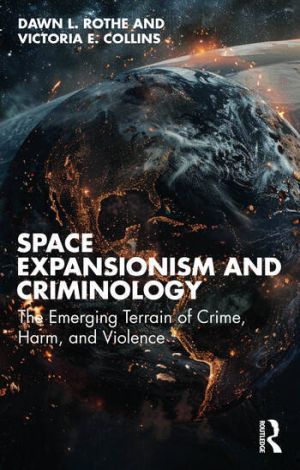
We have entered a recent zeitgeist; the era of the ‘new space age’, driven by billionaires, technological advancements, and a few dominating state powers. All the while, the climate is in crisis and near the point of irrevocable damage resulting in vast changes across the globe. We are seeing vital ecosystems being impacted, species at risk of extinction, and extreme weather from tropical storms, hurricanes, and tornados, to heatwaves, droughts, floods, increased wildfires, rising sea levels, loss of sea ice, and melting glaciers.
While the race to space may be said to offer ‘new’ opportunities for ‘humanity’, we ask, is it predicated on the same logics and historical patterns of the past? This question guides our approach and critical assessment of human expansionism into space. Space Expansionism and Criminology: The Emerging Terrain of Crime, Harm, and Violence offers readers a critical analysis of space expansionism and today’s race to space that has come to define our contemporary era.
Taking a retrospective and prospective approach, we delve into the choices being made, the justifications being offered, and those excluded from the hegemonic discourse of the benefits of humans as extraplanetary beings. Space Expansionism includes chapters on the historical roots of today’s space race, weaponization and realpolitik, space junk and debris, space mining and resource extrapolation, the burgeoning space tourism market, the manufacturing of space nostalgia from the 1950s through today, and efforts towards, and claims-making for, space colonization to save Earth and humanity.
Space Expansionism and Criminology should appeal to undergraduate and postgraduate students, and other scholars interested in the fields of criminology including crimes of the powerful, corporate and state wrongdoing, harms, and violence, as well as green criminology, environmental studies, and global studies who have interests in space expansionism and global planetary politics.